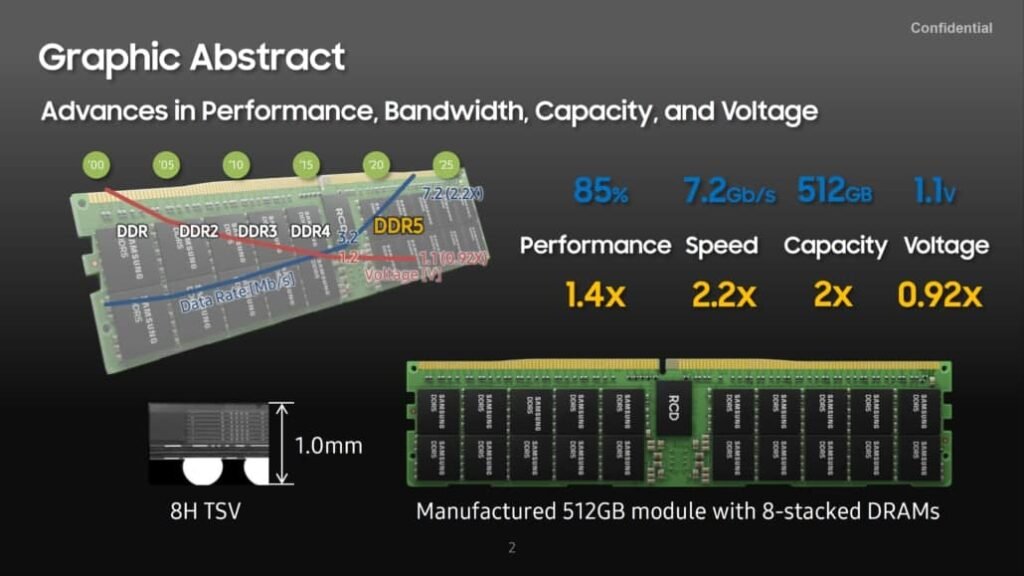At Hot Chips 33, Samsung announced the industry’s first DDR5 512GB memory module with up to 7.2 Gps transfer speed for server, enterprise use. Samsung DDR5-7200 512GB memory module offers 40% higher performance with twice the capacity at a mere 1.1V when compared to DDR4. Samsung’s DDR5 memory will surely be better than the DDR4, mainly in four aspects: performance, speed, capacity, and power.
Samsung DDR5-7200 memory module has eight-stacked DDR5 dies that are interconnected with TSV (through-silicon-via) technology which is a huge improvement over DDR4 as previously it was limited to four DDR4 dies, reports Tom’s Hardware. Samsung DDR5 stack measures 1.0mm in comparison to DDR4’s 1.2mm. Samsung reduced the gaps between the dies by 40%, allowing a height reduction on the stacks by utilizing thin wafer handling techniques
As per Samsung’s presentation, the manufacturer has implemented a Same-Bank refresh (SBR) with its DDR5-7200 memory module, efficiency uplift of the DRAM bus by up to 10%, and touched on the new decision feedback equalizer (DFE) that helps improve signal stability.

The Samsung DDR5-7200 memory module operates at 1.1V, just 0.92x the voltage for DDR4 which was possible due to the high-efficiency power management IC (PMIC), voltage regulator, and the High-K Metal gate process. Samsung claims that its PMIC contributes to lower voltage operation and reduced the noise in the process. For ensuring more reliable and secure data handling, DDR5 is expected to come with an on-die error-correction code (ODECC).
Samsung’s 512GB DDR5 is aimed towards the data center and server market and is likely to top out at 64GB. With 32GB DDR4 memory modules, mainstream users could have up to 128GB of memory on a motherboard with four DDR4 slots. And mainstream DDR5 hits 64GB, even average Joes can have up to 256GB of memory, which wasn’t previously available outside of server platforms.
The mass production for Samsung DDR5-7200 512GB memory modules is to commence by the end of 2021. It is expected that DDR5’s shift over to the mainstream market won’t happen until 2023 or 2024.
